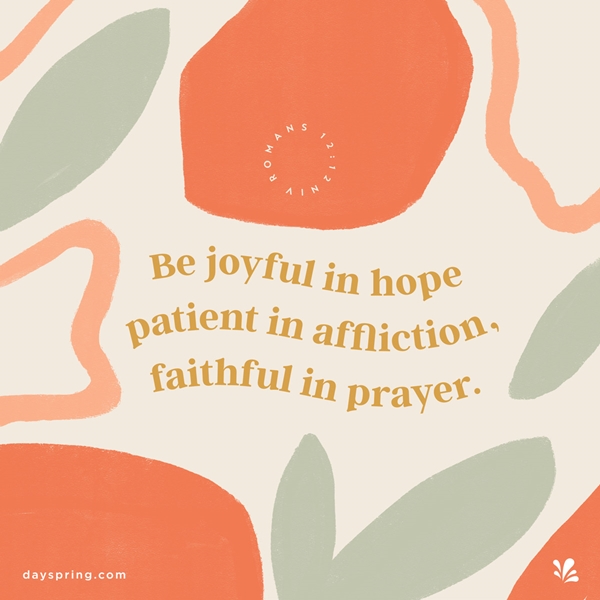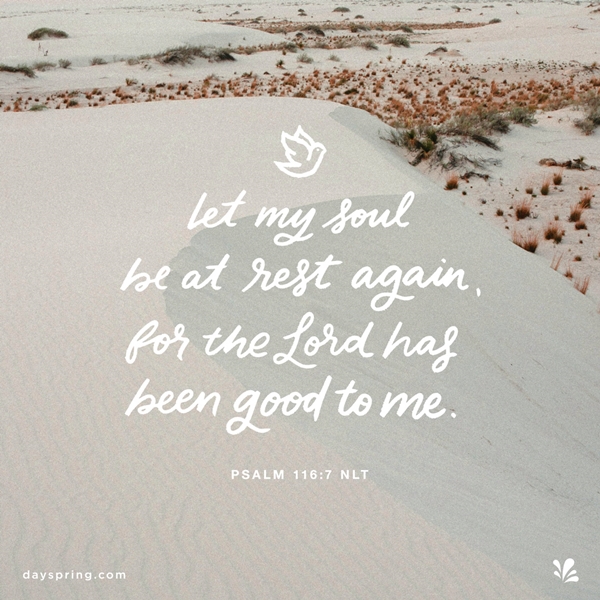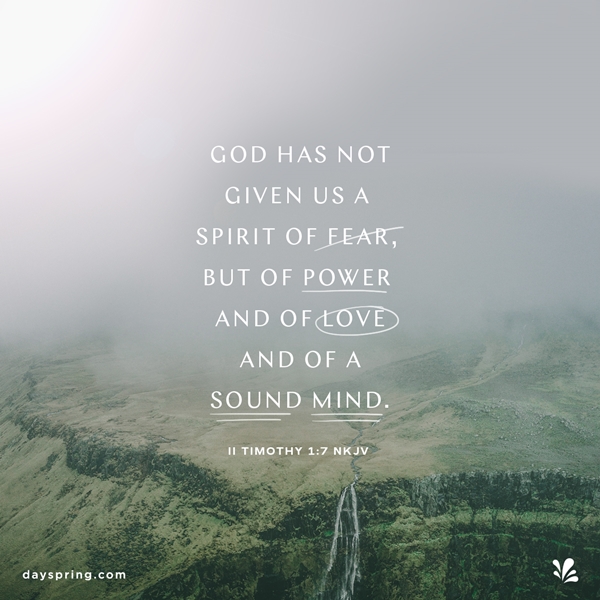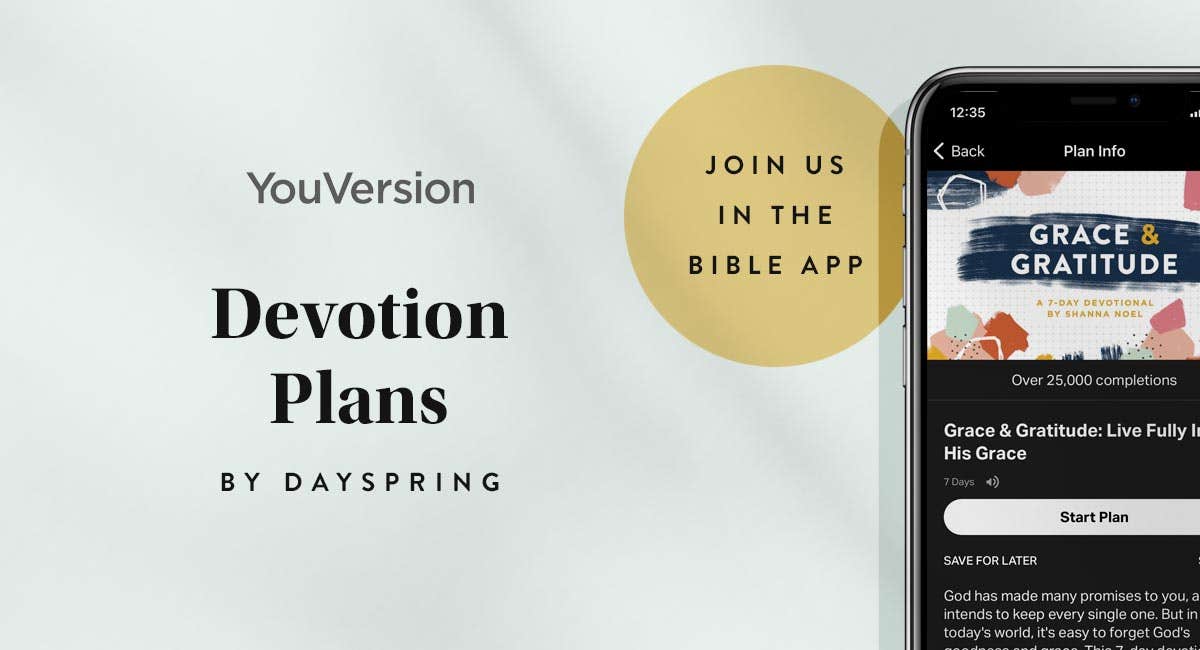Daily devotion
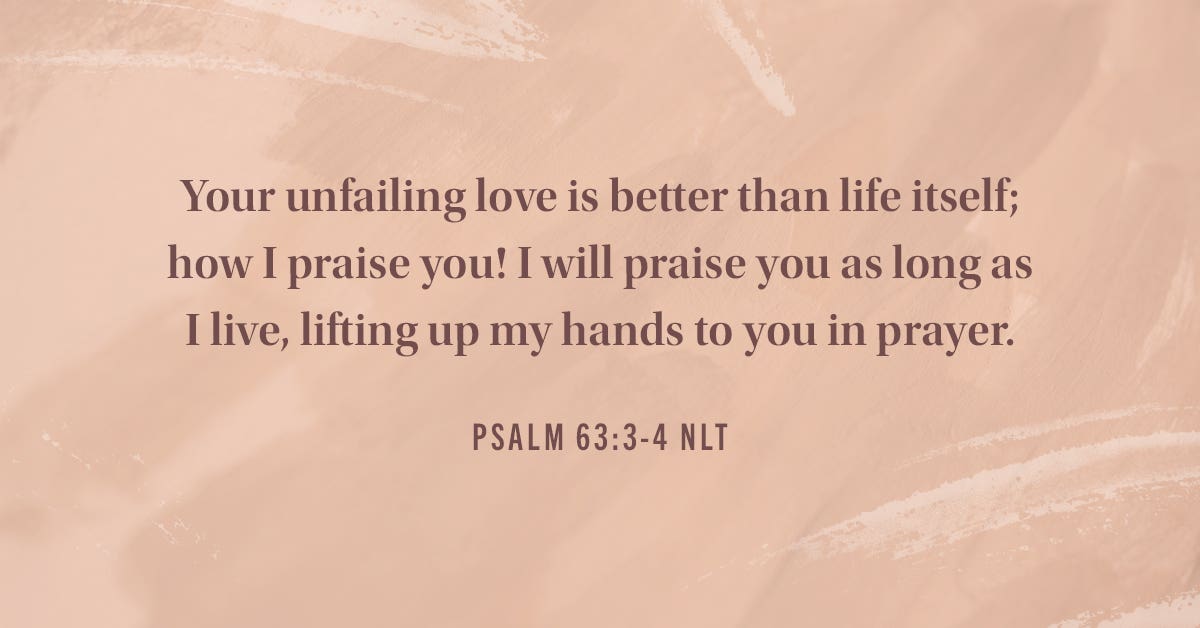
Last spring, we met up with longtime friends for a Major League Baseball game. During the fourth inning, a question came up about another mutual friend of ours who lives a few states away, whom I haven’t been in contact with for years. Naturally, I pulled out my phone and started thumb-tapping her name, happy to see she was still in my contacts. Before I had time to overthink it and consider how random, ridiculous, or rude it was to pop in out of nowhere, I texted Ashley our question: “Remind me of your brother-in-law’s name, and does he still work for the Braves?” Followed by, “How are you???”
To my surprise and delight, she replied quickly. (After all these years, I guess I was still in her contacts too.)
When she replied, “I’m okay,” I intuitively understood something wasn’t okay.
“I’m okay” isn’t the answer you give when you’re doing well. It’s the same answer I give to well-meaning strangers, acquaintances, and even friends when I can’t spare the emotional energy to elaborate on all the hard things going on in my life this year, or it’s just not appropriate to share. “I’m okay” can mean “I’m not really great, but things could be a whole lot worse.” And sometimes it means “I’m getting through today the best I can.”
During those seasons, “I’m okay” is the truth, but barely.
My friend briefly recapped what was going on in her life, including happy things alongside the hard. Regardless of our particular circumstances, grief, heartache, and loss are painful, and pain is downright greedy. It demands more than its share of attention, which is why it is so important to notice, acknowledge, and savor the good things in our lives, too.
Painful circumstances can blind us to the goodness of God, but that doesn’t mean God isn’t good. It just means the pain is temporarily clouding our vision. And, sometimes, all it takes to see God and His goodness clearly is a little help from our friends.
A transparent text exchange with a friend I haven’t seen or talked to in ages reminded me how simple it is to make a difference in someone’s life. This year has been kicking my behind since the first day of the year, but I’m learning how to love others better simply because of how I’m being loved.
If you have a friend who is struggling, she needs you. As a believer, you get to be the hands and feet of Christ to your precious friend by loving her in a tangible way. Isn’t that beautiful?
Wondering how you can love a friend when you know she’s really struggling?
-
Listen with an empathetic heart. One of the most powerful ways I’ve felt loved is to be heard by friends who are fully present and engaged. Resist the urge to offer quick fixes or solutions; instead, let your friend express herself without judgment. If she cries, let her cry. Tears are an expression of our emotions when words are not enough. God designed our bodies with the capacity to cry for a reason.
-
Pray for and with her. Prayer is a powerful tool — let it be your first impulse, not a last resort. Pray with her when you have the opportunity. Praying together will remind her of God’s presence in the midst of her circumstances.
-
Show up. People have “shown up” for me by calling, texting, sending cards, messaging on Voxer, and literally showing up at my house or work. If it makes sense, offer practical assistance to a friend who’s struggling. Help with household chores, run errands, or deliver a meal. Just…show…up.
-
Share encouraging Scripture. Scripture is always a source of comfort, truth, and hope. Share verses or passages that have helped you through hard times. Encourage your friend to meditate on God’s Word and find solace in His promises.
-
Suggest professional help. While your support is invaluable, sometimes professional assistance is necessary. Encourage her to consider seeing a therapist or seek guidance from a pastor if the situation warrants it. Assure her that seeking help is not a sign of weakness but a courageous step towards healing and growth.
-
Respect her boundaries. While your intentions may be genuine, your friend may need space. Even though I’m an open book, sometimes I can’t talk about my stuff. Allow your friend to process her emotions in her own way and time.
-
Share your own experiences. If you’ve faced similar challenges in the past, share your own experiences. A childhood friend has been an incredible encouragement because she’s walked my steps and understands my pain from the inside out. Yet try to keep your conversations focused on her needs and emotions, rather than solely on your own experiences.
-
Point her to God’s love. In loving me, friends have truly reflected God’s extravagant love. They’ve reminded me that God cares deeply for me and I am never alone. Encourage your friend to trust God, knowing He is working all things together for her good.
Loving friends well is our privilege as a follower of Christ, and I’m hopeful to give what I’ve received. When we love others well, we’re demonstrating the compassion and empathy that Jesus showed during His earthly ministry. The goal is always to point a friend toward the unfailing love and grace of God, which, ultimately, is what we really need when we’re struggling.
By Robin Dance as originally featured on (in)courage, a DaySpring community.
Join us every day for daily hope and encouragement in your inbox! Find Scriptures, prayers, and truth from His Word to help you experience and express the life-changing message of God’s love.



